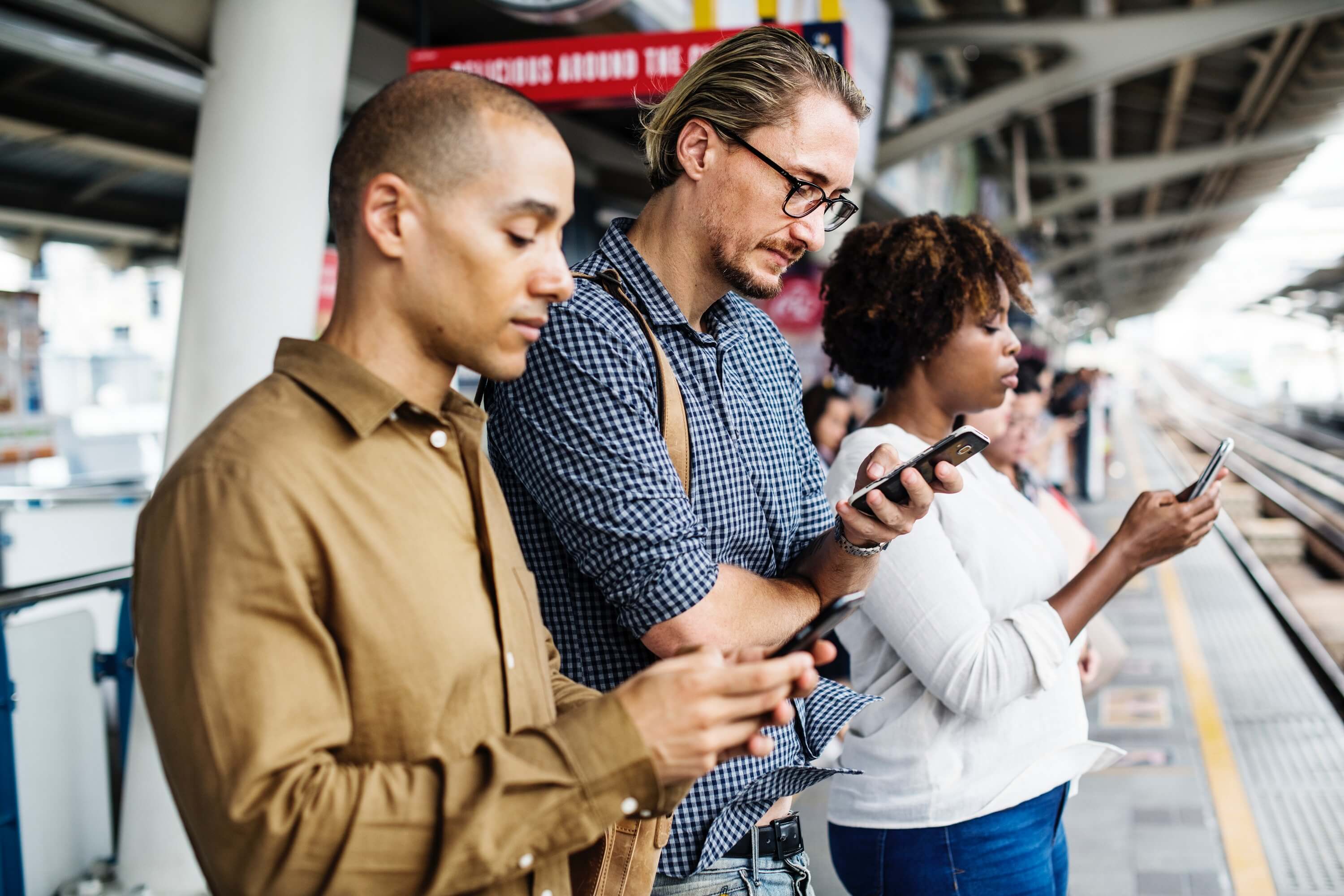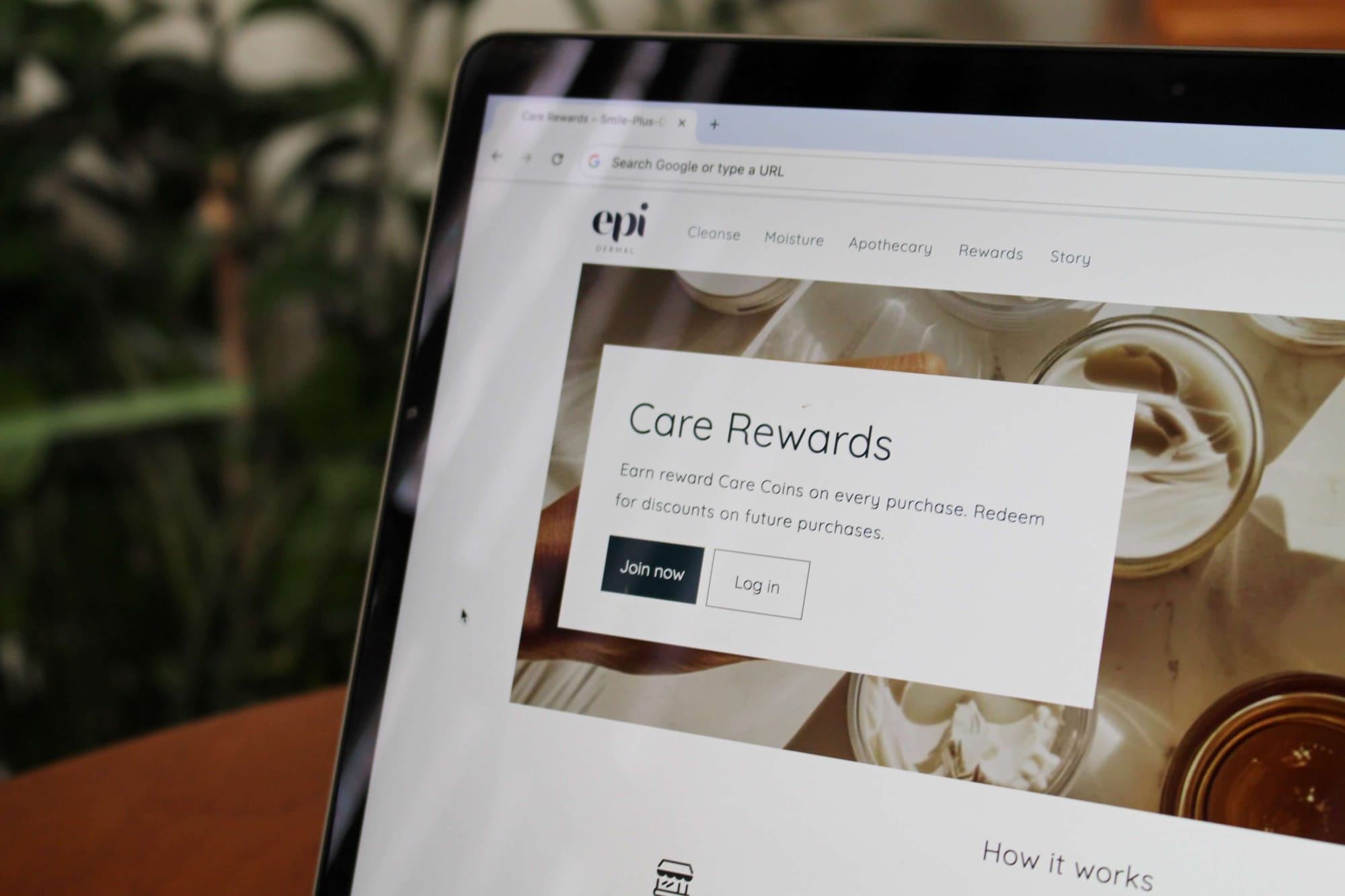It’s hard to remember a time when picking up a phone to book a hotel room or ordering a taxi was the norm. Today, when we want to do something, we want to be able to do it now.
Today’s rapidly changing technology has given birth to the sharing economy, an economic system where individuals can privately rent or share goods or services amongst themselves. Brands like Uber, Airbnb and Lyft have disrupted traditional industries and continue to revolutionize the way we live our lives. The new-ness of these exciting services are great at acquiring customers, but the benefits offered through their loyalty programs are what keep customers locked in.
Tens of millions of people use a ride-sharing app every day and millions of travellers exclusively book through Airbnb. Luckily, creating this kind of loyalty is not something that is restricted to the sharing economy. Even if you don’t operate in an industry with such a high purchase frequency, there are still many strategies you can learn from these top sharing economy brands to keep customers shopping with your brand.
Let’s get started!
Uber
As the leading brand in the ride-share industry, it makes sense to look at what loyalty strategies Uber has in place to retain their customers. Uber Rewards offers customers the chance to earn different point values for different types of rides and then they can trade these points in for Uber Cash to use on future rides. By rewarding customers for rides they’re already taking, Uber has created real, sustainable customer engagement.
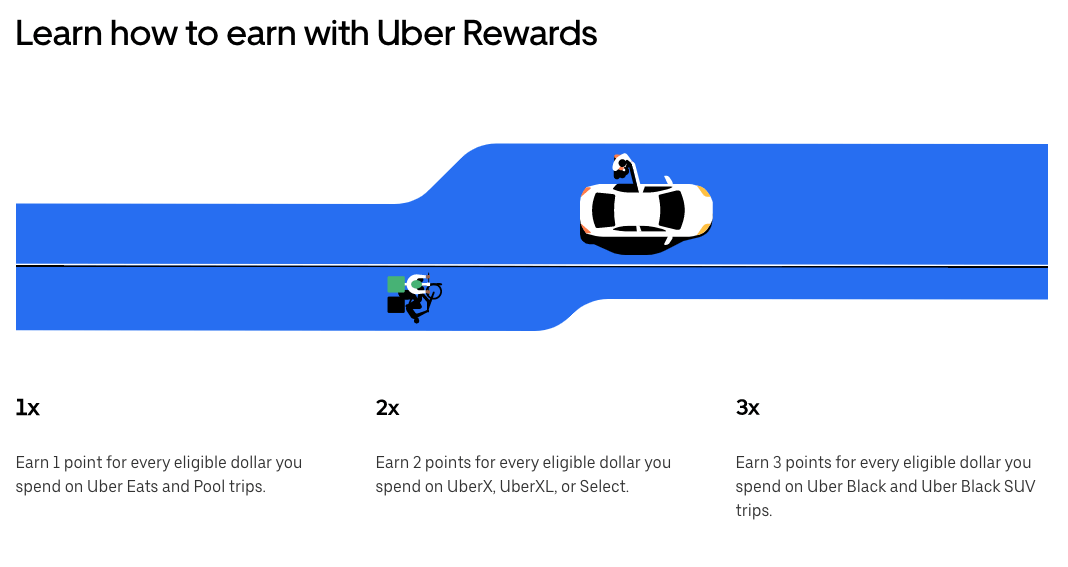
Create an integrated brand rewards experience
Given the fast-paced society that we live in, efficiency is crucial to satisfying your customers. Being able to order a ride at the touch of a button isn’t only fast, easy and convenient, it’s expected. Uber recognized the need to take things to the next level and introduced their on-demand food delivery service, Uber Eats, creating a seamless customer experience by allowing customers to both earn points and redeem rewards through Uber or Uber Eats. With Uber Rewards, customers earn points for every dollar spent on Uber Eats or standard Uber rides and earn $5 worth of Uber Cash for every 500 points earned.
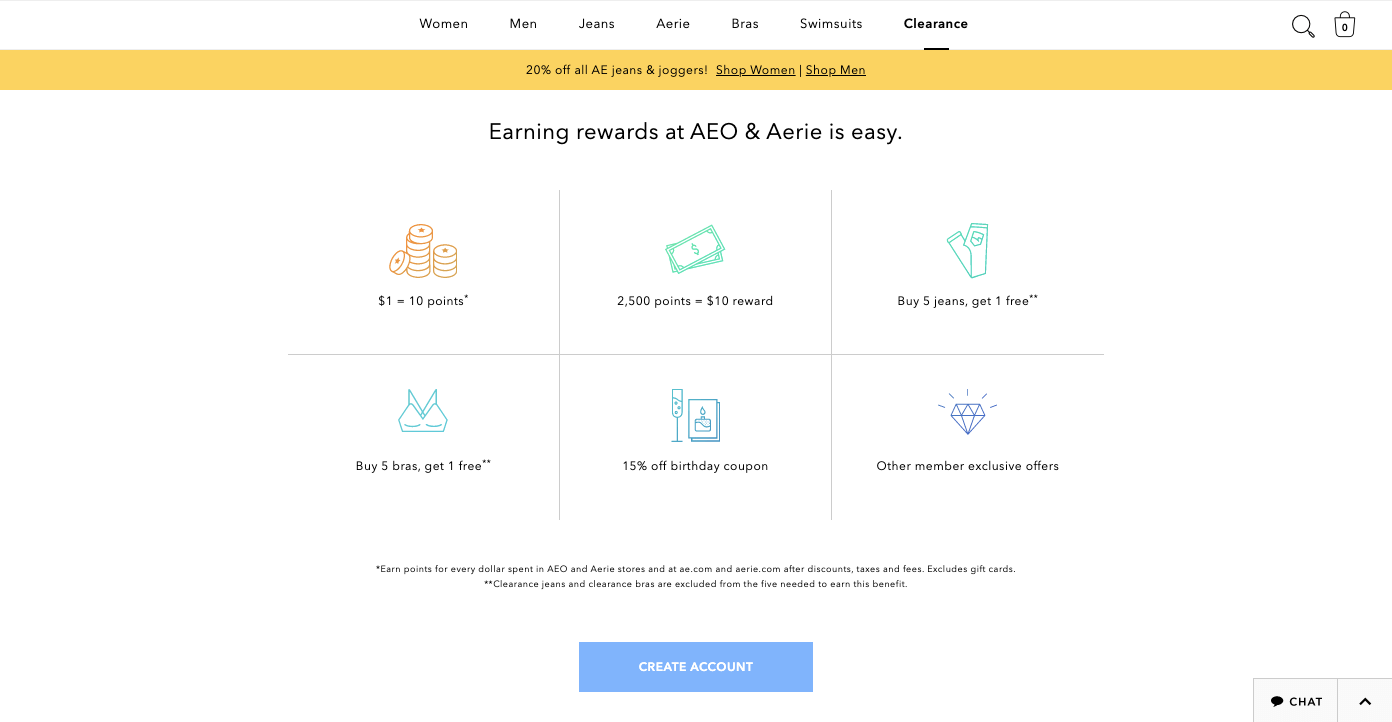
This integration of both platforms creates a switching barrier that incentivizes customers to stay loyal to Uber. Switching to another rideshare or food delivery app would force customers to give up the points and rewards that they have already earned with Uber. Many companies, like American Eagle Outfitters and their subsidiary, Aerie, have adopted this practice to reduce the risk associated with launching a sub-brand. Coordinating your rewards programs amongst multiple brands minimizes the uncertainty for your small business by fostering engagement within your existing loyal customer base.
The multiplying power of referral programs
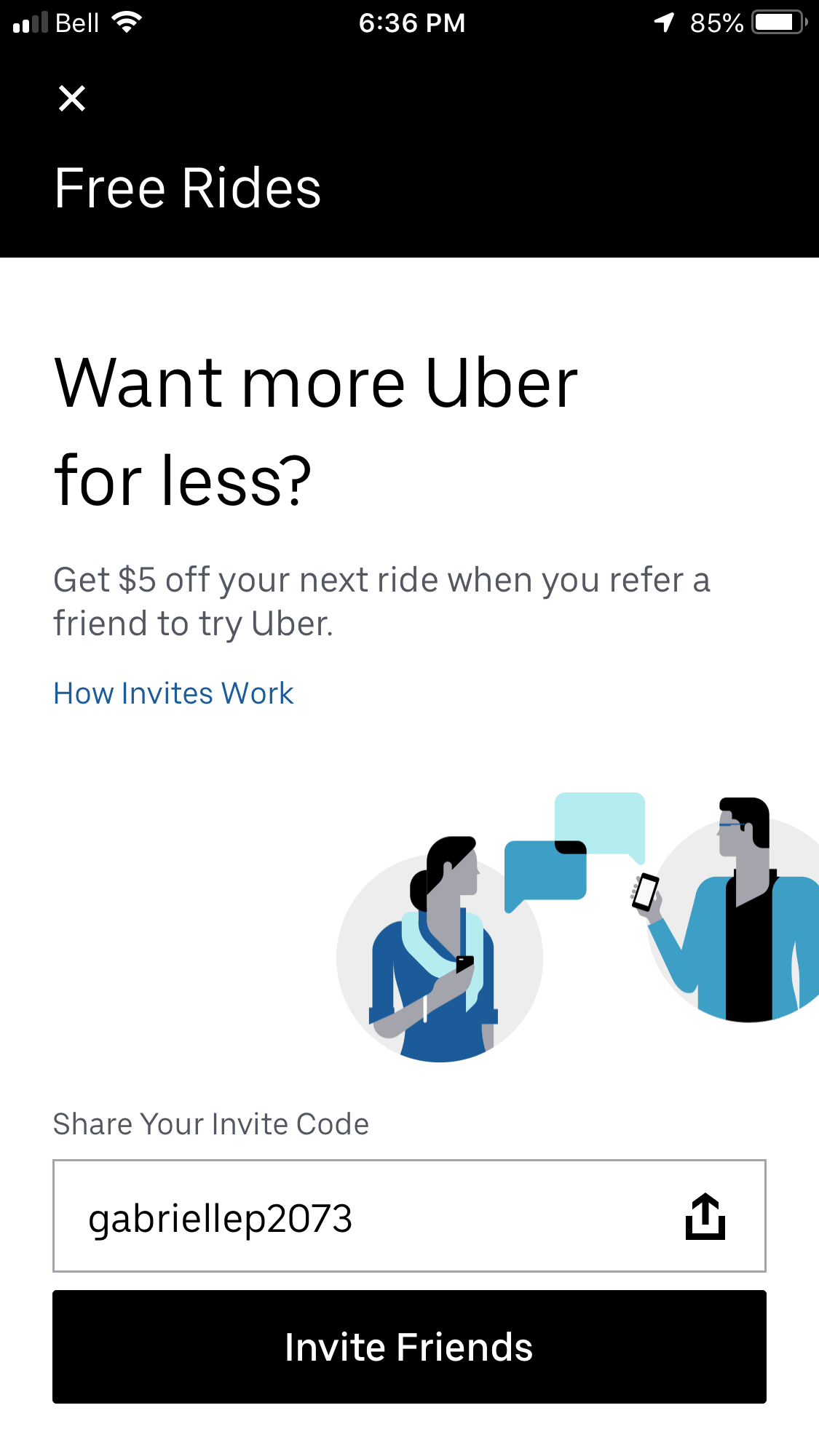
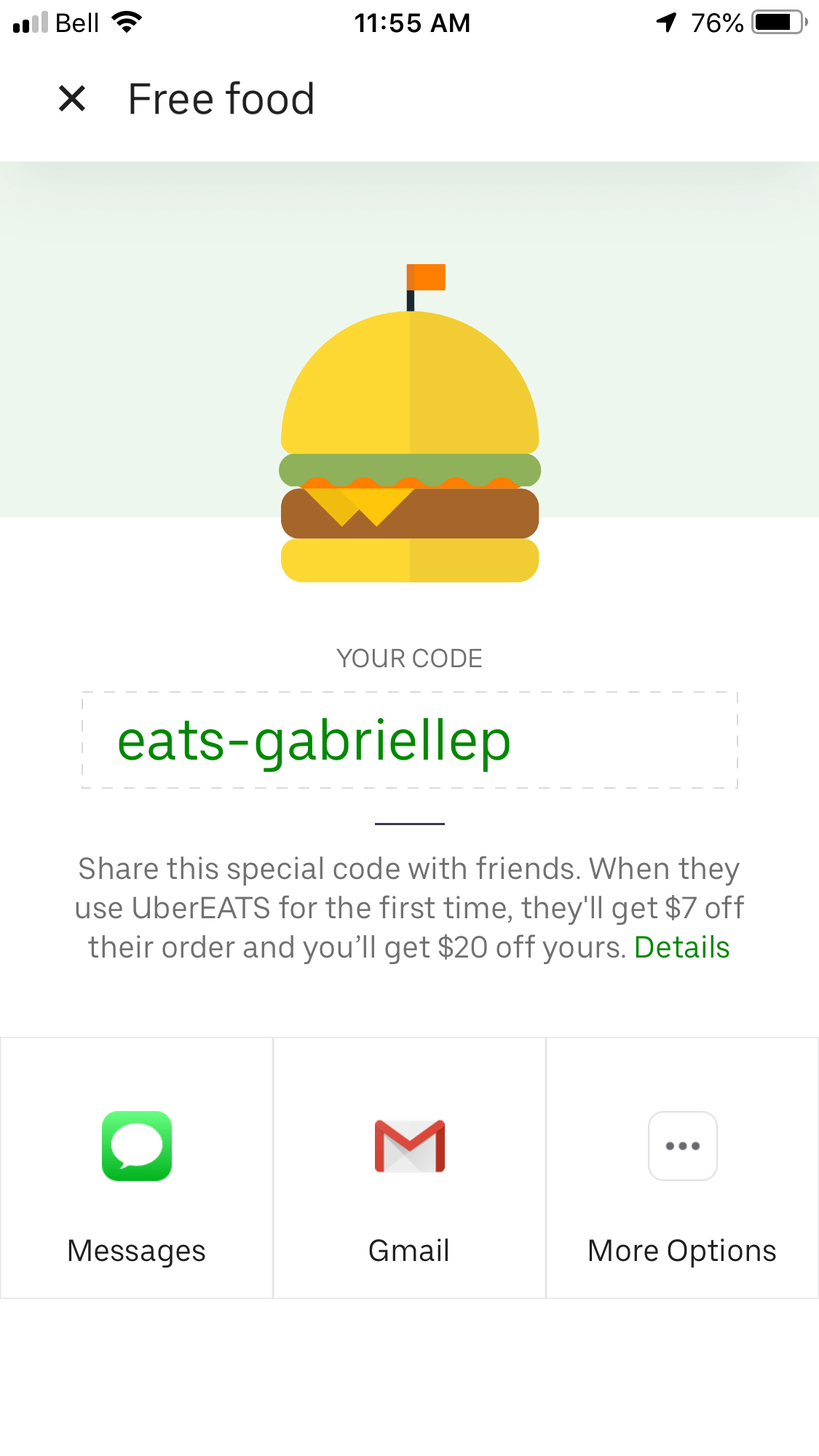
Another one of Uber’s tactics that really drives installations and future rides is the use of referrals, where they reward both current and new users with money off their next rides when existing customers invite new ones. This not only gives customers an incentive to share the brand with their peers, but it also motivates new users to try out the service with very little financial risk. In alignment with the integration of their points program, Uber also offers referrals for sharing Uber Eats with friends. This is clearly another win-win because who doesn’t love free food?
Referrals are a great way for any business to help minimize customer acquisition costs by demonstrating the value embedded in your brand right away.
Airbnb
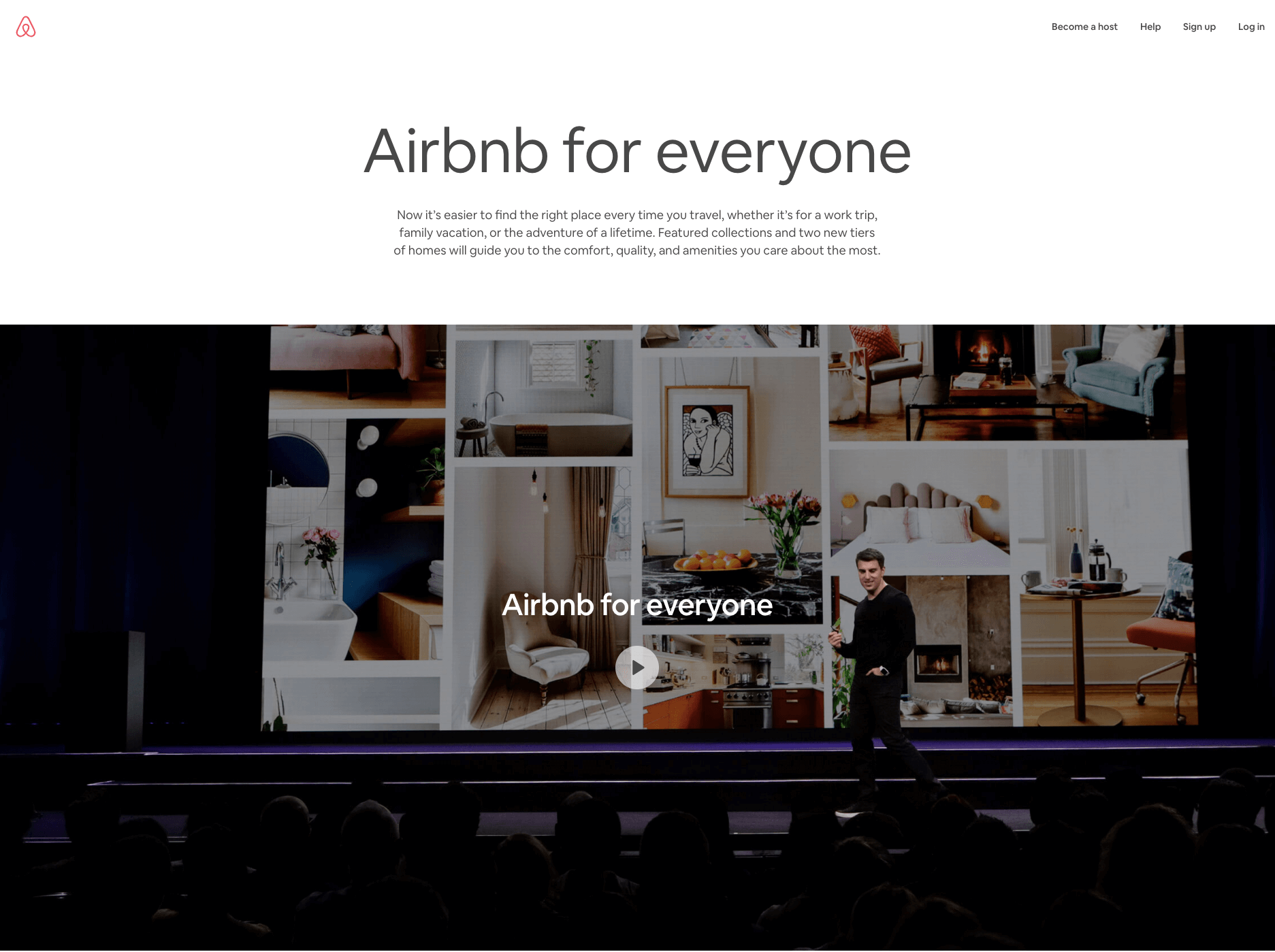
The desire for an authentic travel experience is something that more and more customers are seeking out for their next adventure. Finding a place to stay has transformed from a small but stressful detail in the planning process to an exciting experience that shapes the excitement of the vacation. Airbnb has made this possible by creating an outlet for everyone to find the perfect place no matter what trip they’re going on.
Reward both sides of your multisided platform
When you think of rewarding your customers, chances are you’re thinking about the end-user who is physically wearing, eating or using your product. While that is the norm for most industries, brands like Airbnb (in the sharing economy and otherwise) are forced to think a little broader. With a multi-sided platform, it’s actually the hosts that have the most influence over Airbnb’s guests.
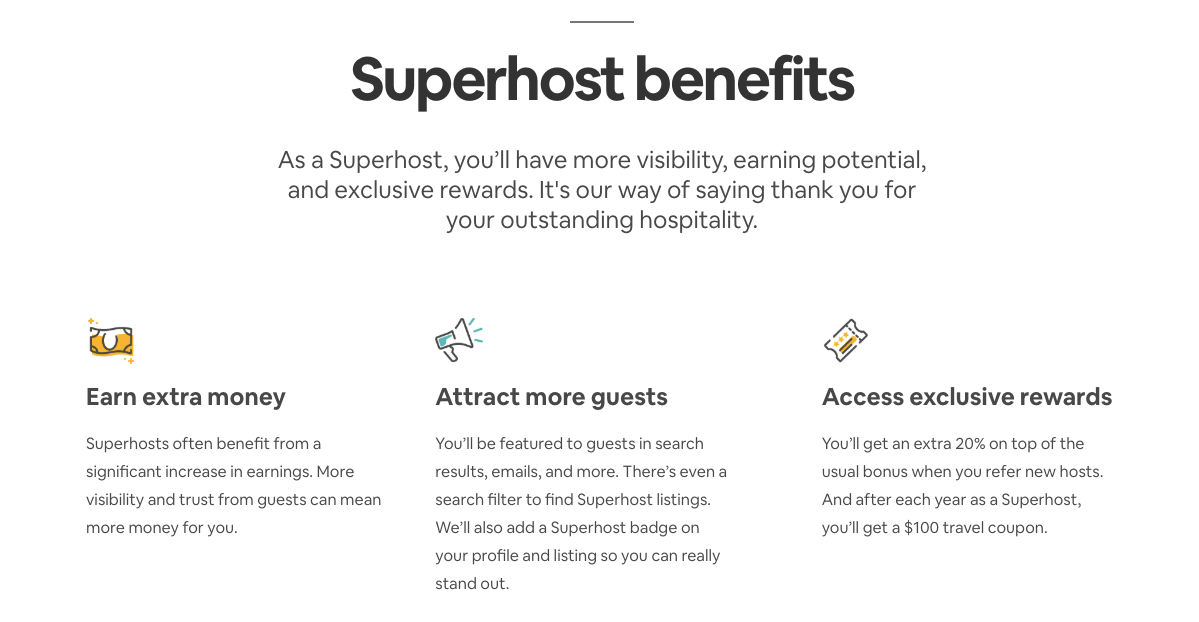
Having two different customer groups means that one type of rewards program is not sufficient. This is why Airbnb offers the Superhost program, which rewards exceptional hosts with more visibility, higher earning potential and exclusive rewards like travel credits. They will also be releasing a Superguest program that offers benefits to customers who frequently use Airbnb. Currently, they have a suggestion portal where customers can suggest rewards that they would value most. By offering the chance for customer feedback, they are able to turn loyal customers into brand advocates who will refer other customers.
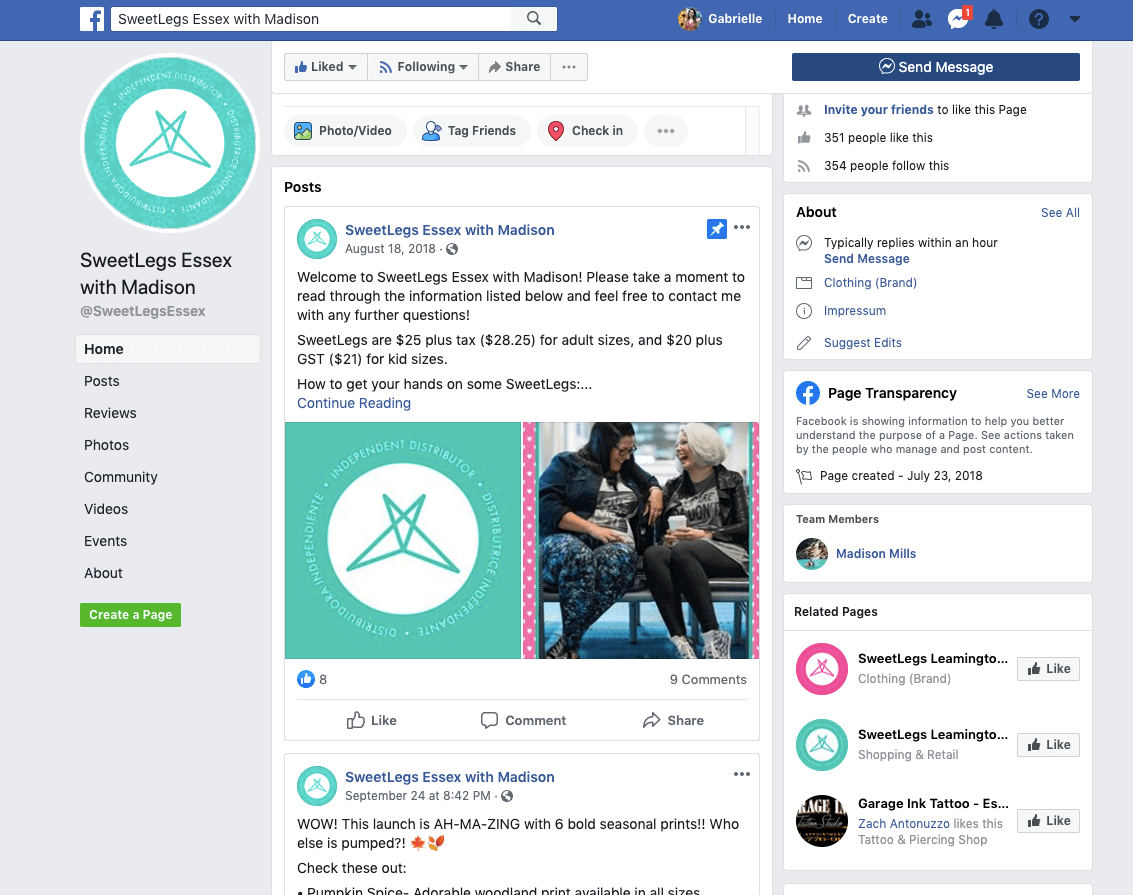
While you may only have one customer group, there is still a lot your small business can learn from Airbnb. Using some of your best customers to sell your products through distributor or affiliate programs is a great strategy to leverage the authenticity of customer messages in selling your products. SweetLegs is an adult and children’s leggings brand that relies heavily on the use of independent distributors to sell their products on a local scale.
The fact of the matter is that you are more likely to trust someone in your network, especially when it is a friend or family member, than a brand. According to Nielsen, 83% of customers find the recommendations of friends and family more credible than traditional advertising. Their community of loyal brand distributors is how Sweetlegs is able to compete in the highly competitive athleisure market.
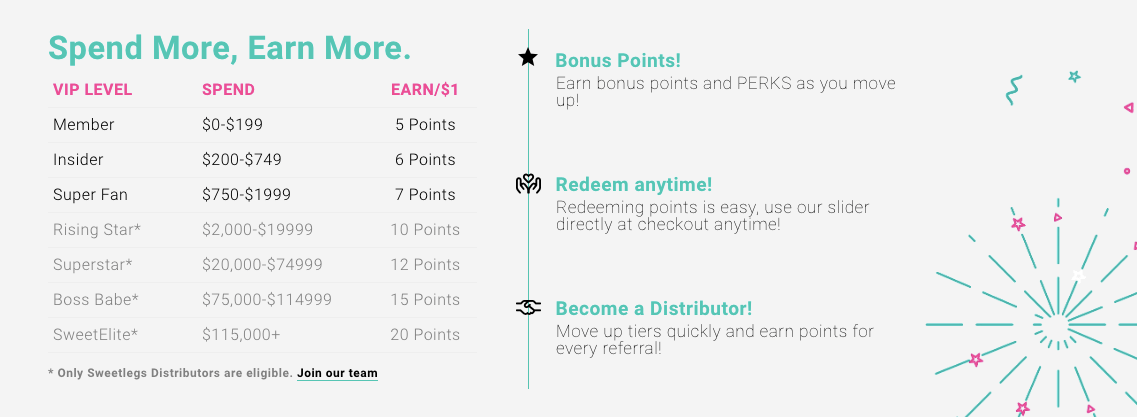
Recognizing the importance of their distributors, SweetLegs offers exclusive rewards just to this group. By offering them the ability to earn more points per dollar spent, they are able to retain their distributors by making the value of the rewards proportionate to the higher purchase frequency. Creating a rewards system that reflects the behaviors and values of each specific customer group is key to fostering loyalty for each group.
Reward customers with top-notch reputations
When your business relies heavily on one of your customer groups, it’s crucial to keep that group engaged. Airbnb has demonstrated their commitment to engagement through the Superhost rewards program, which recognizes the hard work and commitment of their most dedicated hosts. In the travel industry, customers are constantly seeking out validation from their community. This makes the use of referrals, customer reviews and stories absolutely invaluable for Airbnb. This type of positive user-generated content helps reassure customers that they are going to have just as positive of an experience as the previous users.
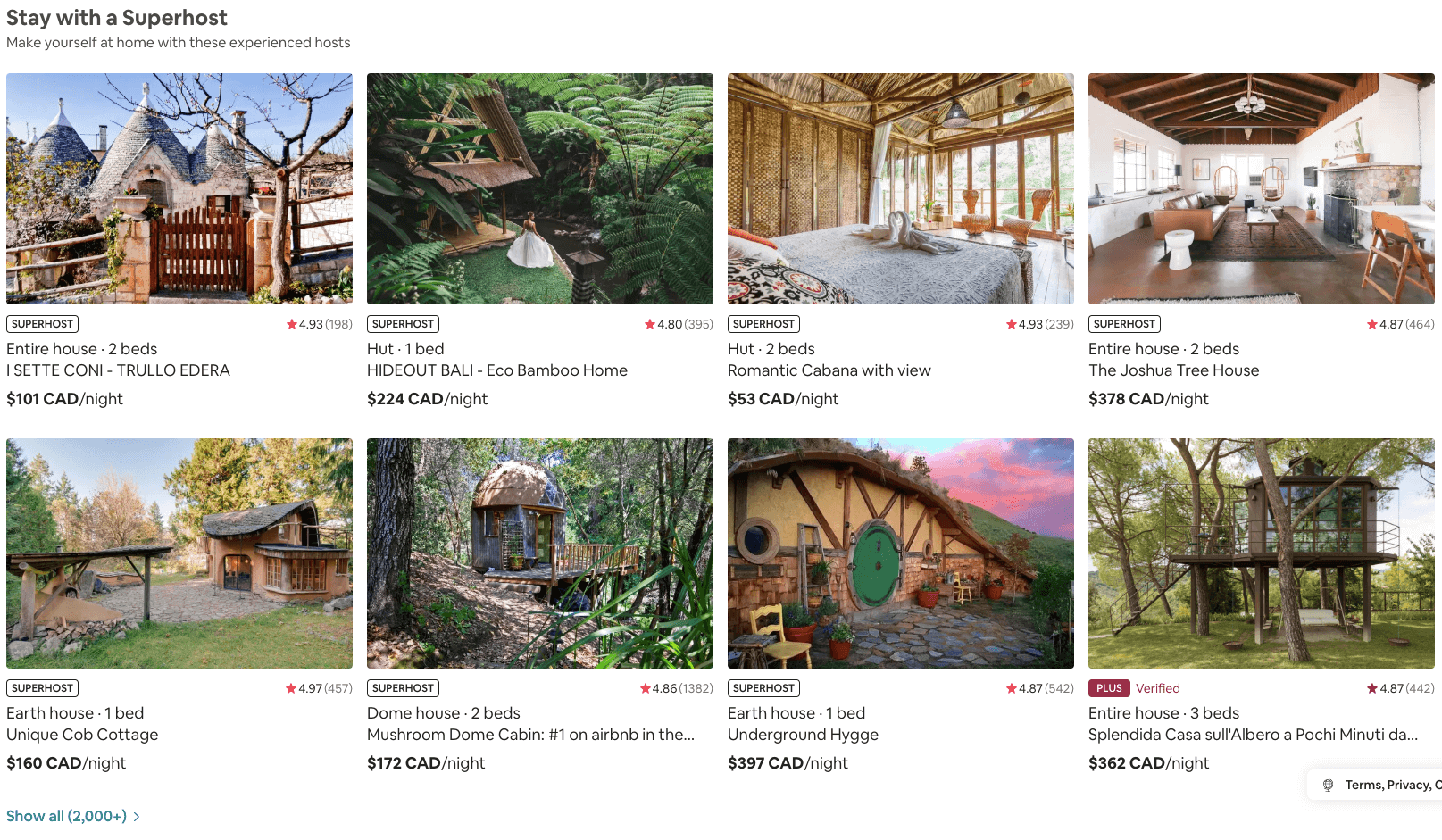
Airbnb recognizes their loyal hosts by validating their profiles with super host badges or for the even more dedicated hosts, an Airbnb Plus badge. In an environment where users have an overwhelming amount of options, rewards like these can provide one of the most valuable perks: a 5-star reputation. The trust associated with that strong reputation is something that hosts cannot put a price on and Airbnb definitely recognizes that.
It’s no secret that most of us care about our reputations. That’s especially true for your most loyal customers. As a small business, you can take notes from Airbnb by rewarding your customers through a tiered VIP loyalty program. In industries with high purchase frequencies like travel, cosmetics, or food, the best motivator can be a status that is hard to achieve.
"Social comparison theory explains how individuals evaluate their own opinions and abilities by comparing themselves to others."
Wikipedia
Humans have the tendency to compare themselves to others and have an innate desire to outperform each other. This is the whole logic behind social comparison theory, which states that we evaluate our opinions of ourselves in comparison to others. Reaching that top VIP tier provides a sense of accomplishment and self-worth that drives customer engagement.
If you want your customers to keep coming back for more, challenge them to achieve that top-tier VIP status.
Lyft
As another big player in the ride-sharing economy, Lyft has created its own loyal customer base. They’ve been able to compete with Uber by offering several unique travel options and by using distinct reward strategies that set them apart.
Design rewards that are just as unique as your customers
We’ve all been told that everyone is unique in their own way, and the same is true for your customers. Some brands aim to capture everyone and anyone as their customer because their values and mission can resonate with a wide variety of people. However if this happens you’ll end up attracting different customer segments with vastly different buying behaviors. As a brand, you have to ensure that you craft a rewards program that will satisfy the unique needs of each of your customers.
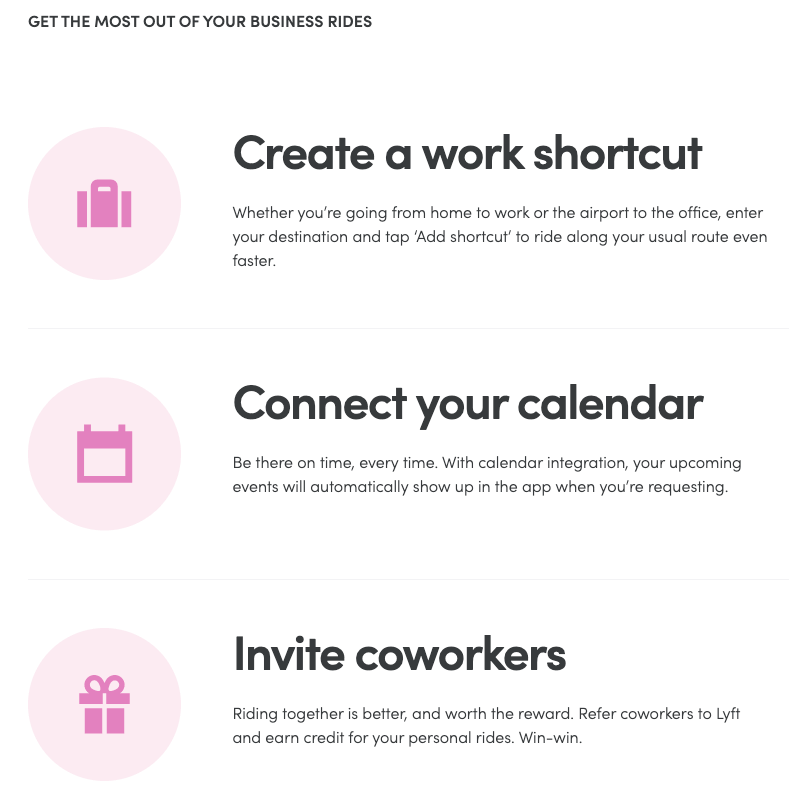
Lyft has recognized that a large portion of their customer base is using their service as their primary method of transportation for work trips. This drove them to create Lyft Business specifically for business travel. By registering a new business profile, users are able to take advantage of specific features such as creating shortcuts for their usual work route, seamless in-app expensing, and meeting and event calendar integration. Users are then able to unlock special perks like discounted rides and a personal ride credit when they refer their co-workers.
Lyft successfully recognized the high-demand for business travel and decided to reward these users for their commitment.
Just like Lyft, your small business might have a very big (and diverse) customer base. If you’re able to make all of these groups feel equally valued through specific variations of your loyalty program, you’ll be able to kick your customer retention rates into high-gear.
Team up with the big players through brand partnerships
When you’re competing in a very competitive industry with lots of big players, it can be challenging to foster loyal brand communities. One of the best ways to do this is by creating strategic brand partnerships to leverage another company’s success. A brand partnership (also called co-branding) is a marketing strategy that utilizes both brand names on some type of new product or service offering.
Your small business can make big moves by creating a brand partnership for your loyalty program. Through mutually beneficial relationships, you can offer both your customers and partner brands’ customers something of value that will create engagement for both brands.
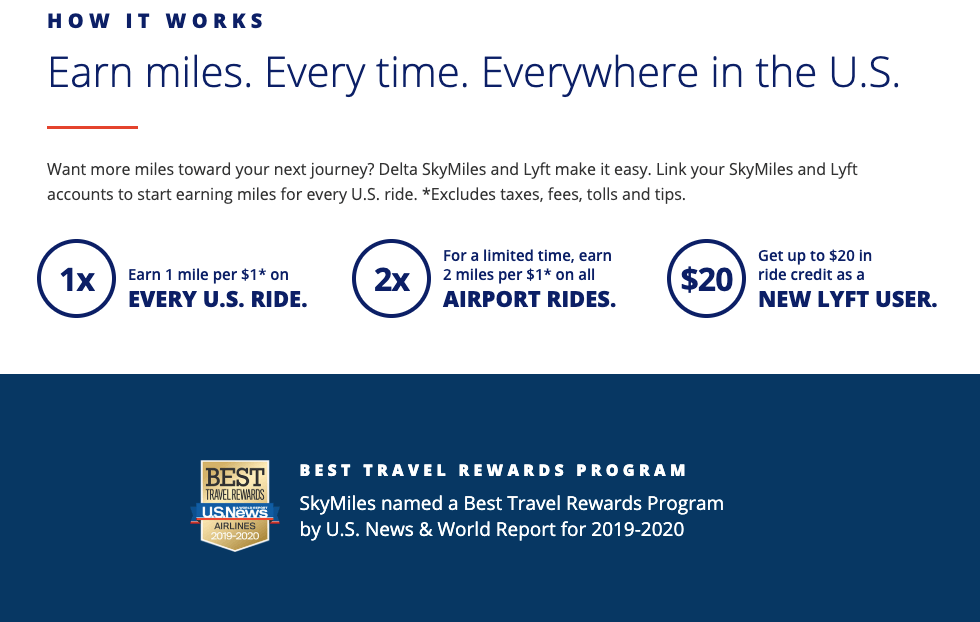
Lyft has recognized the value in this strategy through several brand partnerships including its partnership with Delta Skymiles. This program gives users the opportunity to earn Delta Skymiles points for every dollar they spend on U.S. Lyft rides. Delta’s rewards program is extremely reputable and successful and Lyft is able to leverage that loyal brand community to promote their own brand.
Sometimes the best strategy for your small business is as simple as partnering with a big business.
Rewards strategies worth sharing
It’s no secret why Uber, Airbnb, and Lyft have created communities of loyal customers that wouldn’t even consider going back to the traditional hotel and taxi businesses.
By leveraging the power of referrals, rewarding users with top-notch ratings, and catering rewards to every type of customer, these sharing-economy brands have figured out the best ways to acquire, engage and retain customers.
While your brand might not technically fall within the sharing economy, these strategies are a great way to steer your small business in the right direction to create an effective loyalty program.

